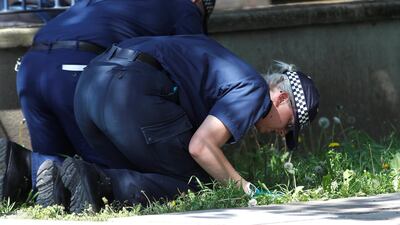The UK’s data watchdog is investigating a secret police gangs database containing the names of 3,800 children and adults following claims that it breaches human rights law.
The database was set up in 2012 after a wave of rioting that hit London and other British cities the previous summer. It includes intelligence on suspected gang members but has been criticised by rights group Amnesty International for disproportionately targeting black people.
The group claimed that inclusion on Scotland Yard’s Gang Matrix could affect the chances of people getting homes, education and jobs as the details can be shared with government officials.
The database includes details of previous offending, social media posts and information of anti-social behaviour supplied by local councils.
It uses an algorithm to calculate the level of risk which has identified five per cent of the 3,800 people on the list as being at the highest risk of committing violence.
The report by the rights group comes amid increased concern over knife violence in the capital following a series of stabbings, predominantly linked to street gang rivalries.
The Information Commissioner’s Office - which investigates potential data offences – said it had started an investigation following information from Amnesty.
James Dipple-Johnstone, the deputy commissioner for operations, said: “We're considering how the database is used and if any aspects of it constitute a breach of the Data Protection Act.
"At the conclusion of our investigation we will communicate any resulting recommendations and enforcement actions."
The investigation by Amnesty found that 40 per cent of the people on the list had no record of charges or police intelligence linking them to violence in the past two years.
_____________
Read more:
London deploys 300 extra police to combat violent crime
London murders hit New York levels after surge in knife crime
_____________
Amnesty’s UK Director Kate Allen said: “There is clearly a huge problem with knife crime violence at the moment in London, but the Gangs Matrix is not the answer.
“It's part of an unhelpful and racialised focus on the concept of gangs.
"The entire system is racially discriminatory, stigmatising young black men for the type of music they listen to or their social media behaviour, and perpetuating racial bias with potential impacts in all sorts of areas of their lives.”
Figures from July 2016 showed that the majority of those on the database ranged in age from 12 to 24 and 78 per cent of the people listed were black. Some 13 per cent of the population in the capital is black.
Scotland Yard said the aim of the database is to "reduce gang-related violence and prevent young lives being lost".

